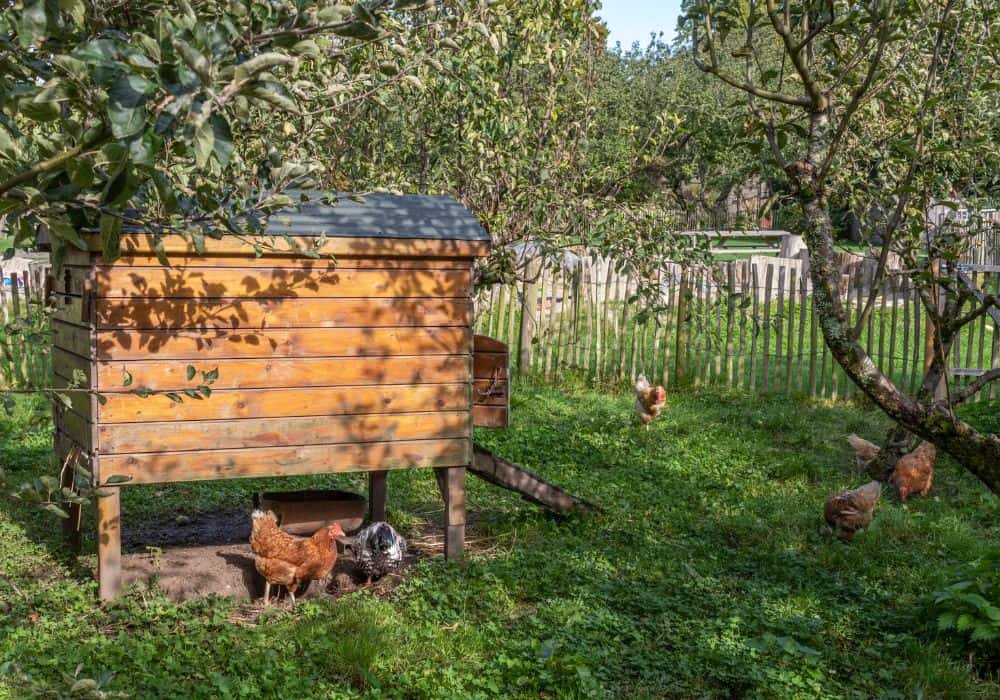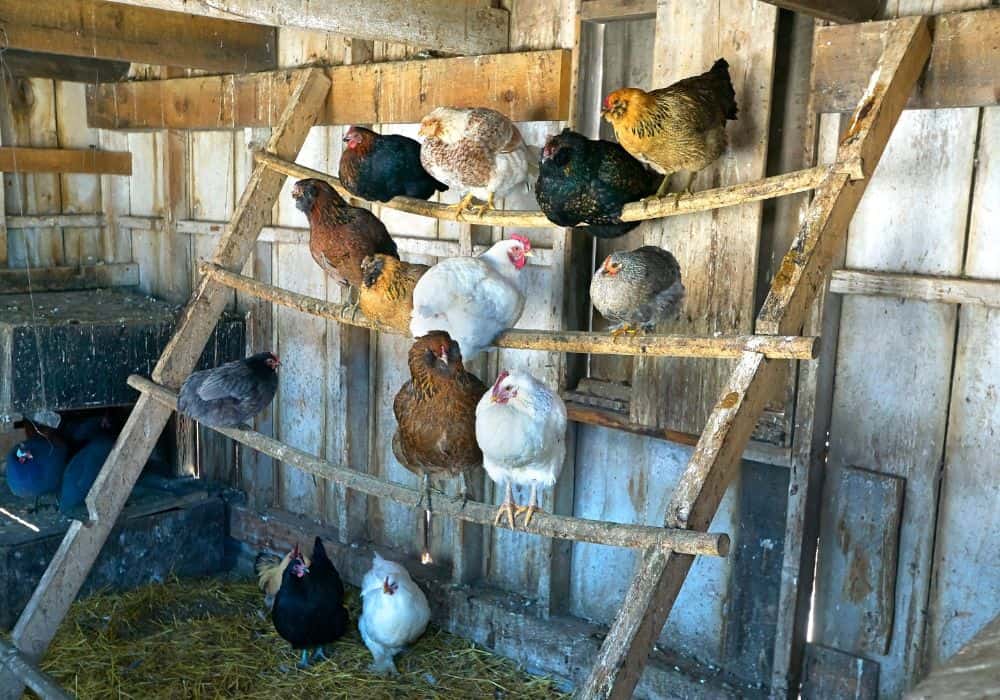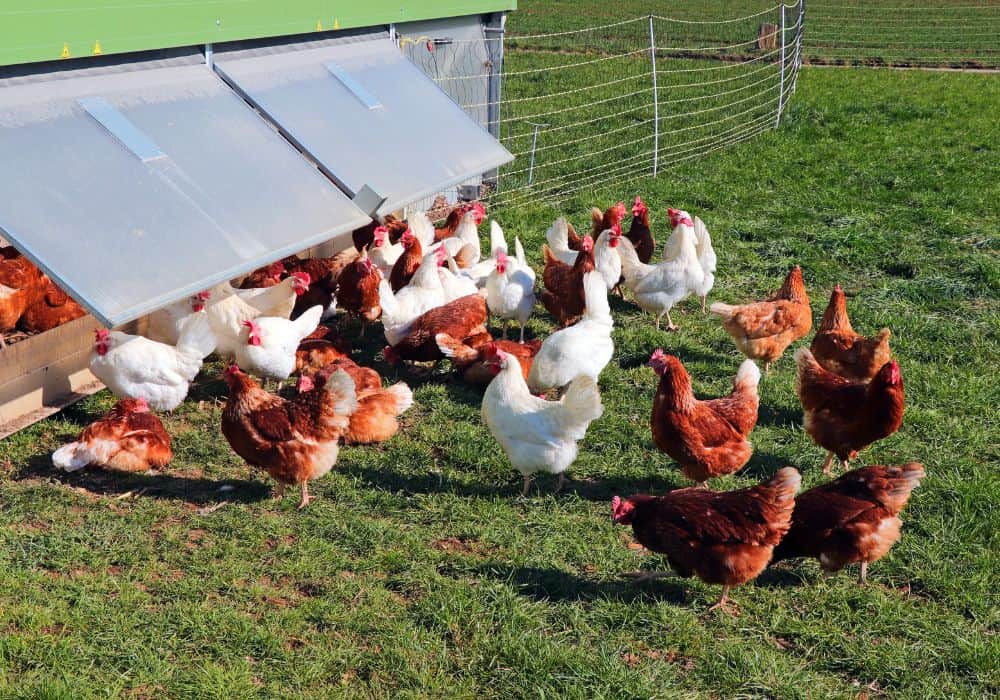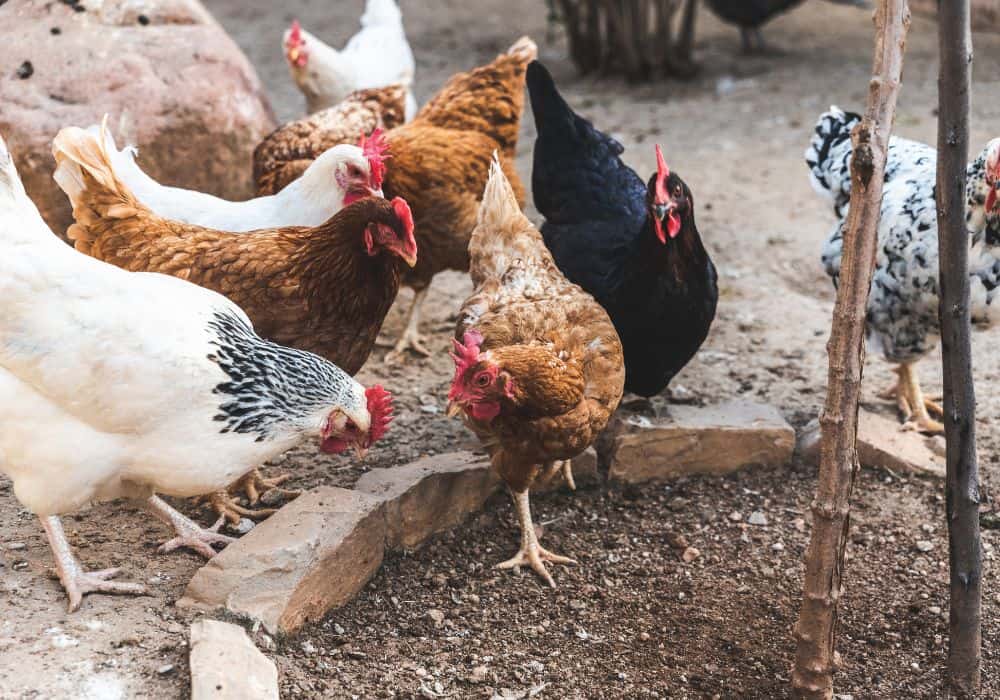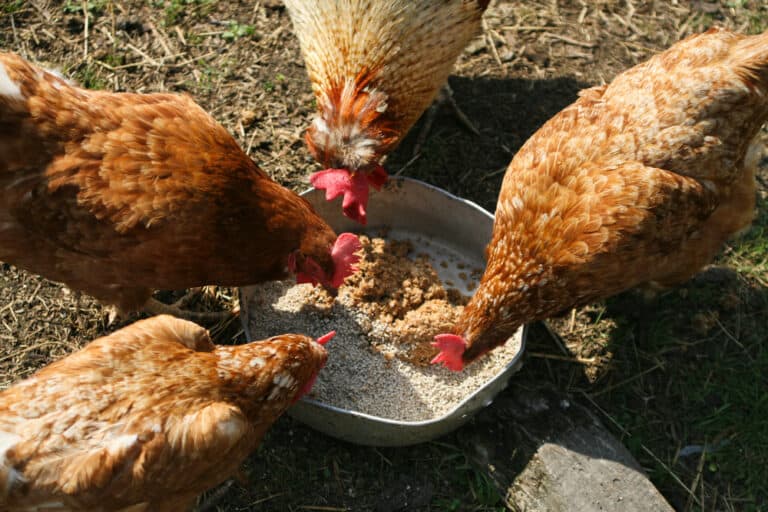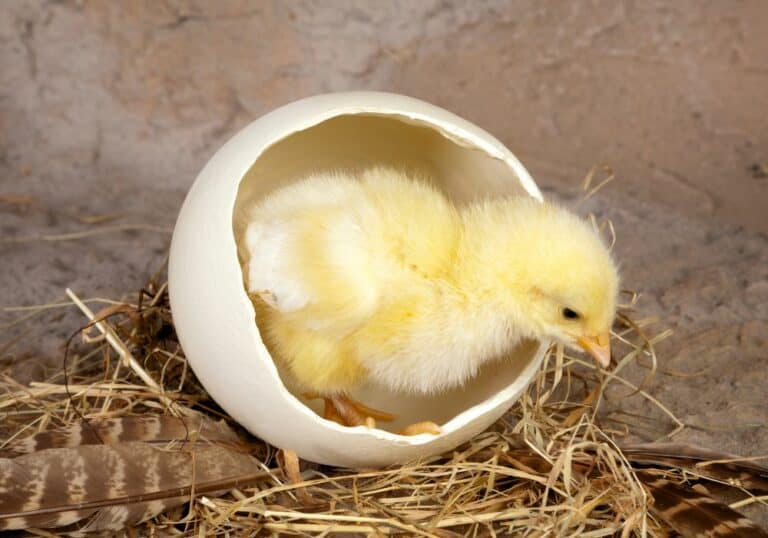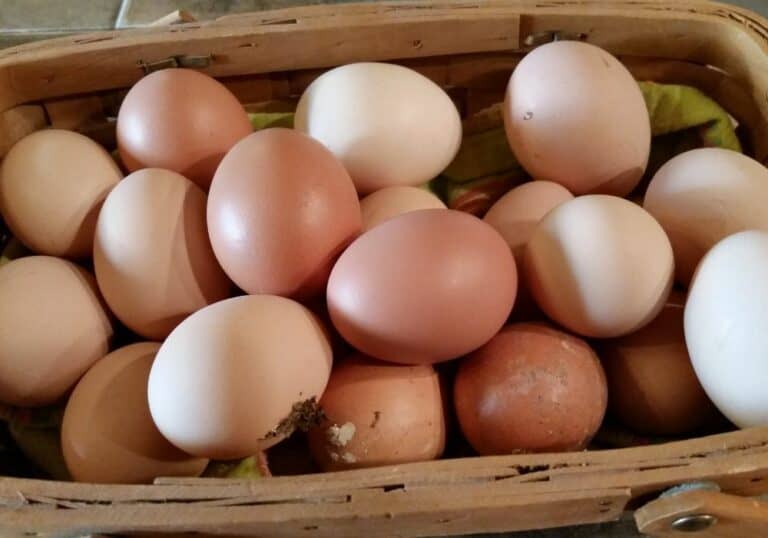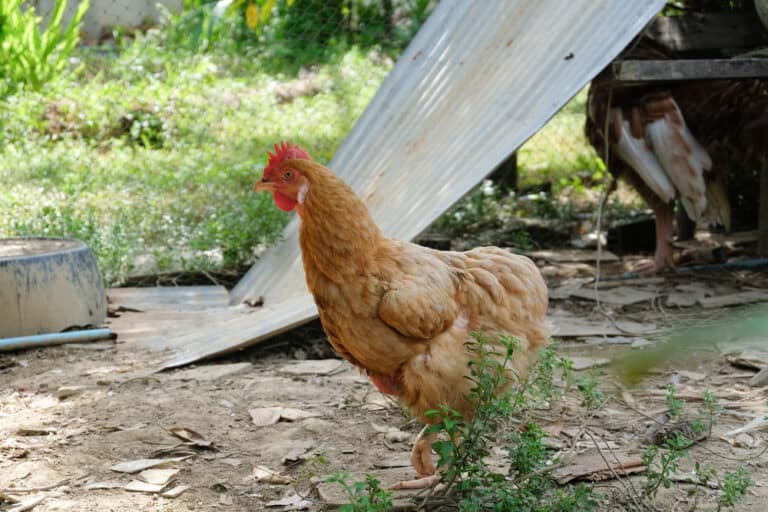Chickens are wonderful animals to keep. Not only can they be fun and affectionate, but they can also give you a plentiful abundance of fresh eggs. If you’re looking to keep chickens, then you’ll no doubt have plenty of questions about them.
One of the most obvious is when chickens start laying eggs. Here we’re going to answer that question while also looking at the stages of a hen’s life, how to encourage egg laying, and some common FAQs. Read on to find out more!
When Do Chickens Start Laying Eggs?
It’s important to note that there are a huge range of chicken varieties and all of them will start laying at slightly different times. That being said, almost all chickens will start laying eggs somewhere between 18 and 22 weeks.
Not only can this number change from one chicken variety to the next, but also conditions will affect it too. For example, chickens produce fewer eggs throughout the winter and therefore, a chick born in colder conditions may take longer to lay its first egg.
Another important aspect to note is that chickens don’t immediately start laying fully-sized eggs. Their first few are generally smaller as they continue to grow. Eggs will usually reach their full size at around 30 weeks.
If you want to know whether or not your hens are ready to start laying, here are a few signs to look out for:
- Combs and wattles becoming bigger and redder
- Being more curious about their nesting area
- Start getting louder
- Have an increased appetite
- Start squatting as preparation for a rooster
Stages of a Hens Life
To better understand when a hen will start laying eggs, it’s a look idea to look more closely into the stages of a hen’s life and how this relates to its egg production.
- Chicks – 0-5 weeks – As with many other animals, chicks rapidly develop. After just over three weeks they should have most of their adult feathers and after a month, they’ll be easily identifiable as their specific breed.
- Pullet – 5-18 weeks – This is also commonly called the teenage stage of a chicken’s life. You often can’t tell the sex of a chicken until they reach the latter stages of this phase. Hens are often kept for egg production whereas roosters are either kept for reproduction, or for meat.
- Hens – 18 weeks to 5 years – This is going to be when your hen starts laying eggs. However, the exact weeks can change from one chicken to the next. As mentioned above, a hen will get to peak egg production at around 30 weeks and that peak will last for around two years.
- Retirement – 5+ years – As time goes on, a hen’s egg production will gradually decrease. In commercial farms, hens are usually kept as egg layers for around two to three years. Not only will production decrease, but so will egg size and quality. After around five years, a hen will stop laying eggs altogether.
How To Encourage Chickens to Start Laying Eggs
Hens aren’t an egg-laying machine. They need a good environment and conditions in which to thrive. If they don’t have the right conditions they may lay poor quality eggs, not lay frequently, or not at all. Here’s how you can help increase their production.
- Add Light and Heat – Egg production is stimulated by daylight. Hens want around 14 hours of sunlight per day for peak egg performance and this can be very difficult to achieve in the winter.
One way to combat this is with heat lamps. This can help to keep that egg production high throughout the winter.
- Diet – Hens need lots of protein and calcium to produce high-quality eggs. This includes a high-quality diet of grains and fruits. Either giving them insects or letting them forage for them is a great idea. You can also give them crushed eggshells for extra calcium.
Giving them green vegetables is also a great solid source of vitamins and minerals. Added to this, give them fresh clean water to drink.
- Warm and Safe – Hens will likely lay fewer eggs when they are uncomfortable or stressed. Ensure they have a warm and safe environment where they can lay in peace. This includes making your coop protected from any predators.
- Healthy – Are your hens healthy? If they are suffering from any illness or parasites, then they could stop producing eggs. Check their behavior and if anything looks off, then it’s best to have them checked out.
What To Do If Your Chicken Is Not Laying Eggs
You have a hen that isn’t laying eggs, what can you do? This depends on a few factors but let’s look at some common issues.
- Age – This is the most obvious point, but are they at the right age? Chickens before 18 weeks are unlikely to start laying, and hens over five years old have probably laid their last egg.
- Daylight – Light and heat are vital for egg production. If hens have been left in a cold climate, they’ll stop laying eggs until it starts getting warm again. This can depend on the type of breed and the local climate.
- Broody Hens – If a hen is a broody, she will want to lay on her newly laid eggs. When they do, they won’t produce any more eggs. If you want a hen for egg production, you need a breed that isn’t broody.
- Stress – There are plenty of things that can stress a hen out such as poor living conditions, a poor climate, or predators. A stressed hen will slow down egg production. Check their coop and see how you can improve it.
- Diet – We mentioned above how a great diet can stimulate egg production, but the opposite is true. You may be accidentally giving them food that can be harmful to them, such as onions, citrus fruits, avocados, or foods with high salt/sugar content.
Added to this, free-range chickens may be eating plants that are toxic to them. Examples of plants to avoid are hydrangea, ivy, fern, hemlock, and tulip.
- Molting – Is your chicken molting, i.e., losing its feathers? It is completely natural and first happens after around 18 months. After the first molt, they’ll do it once per year. It lasts anywhere between 4 to 16 weeks. When molting, a hen won’t lay any eggs.
FAQs
1. How do I know when my chickens are ready to lay eggs?
There are plenty of signs to look for such as them being louder and having a greater appetite. Also, their wattles and crowns will enlarge and get a deeper red color. You may also find that they squat when you go to pet them. Here they are getting ready for a rooster.
2. Why are my 20 week old chickens not laying?
Some hens will take their time to lay their first eggs. Also, a hen’s first eggs can be much smaller, so check that you haven’t missed them. However, very large chickens in the middle of winter may not start laying until 30 weeks. If you still don’t have eggs after that, make sure you don’t actually have a rooster!
3. Can you eat a chickens first egg?
They are called pullet eggs and you absolutely can. Many think you shouldn’t as they are so small but this isn’t true. Not only can you eat them, but many find them to be incredibly delicious.
4. How long can eggs sit in the coop before they go bad?
It depends on how hot it is, but eggs will last for 4-5 weeks in a coop before they go bad. The float test is the easiest way to check if an egg is still good. Quite simply, if it floats then you can’t eat it. If it sinks to the bottom, you’re all good.
While you can leave them for weeks, it’s best to collect them quickly for a few reasons. Sitting eggs can easily be broken, they can attract predators, and it may make the hens broody.
5. Why do farm fresh eggs not have to be refrigerated?
Many Americans are shocked to find that many other countries, including most of Europe, don’t refrigerate their eggs. This is because most of these chickens are vaccinated from salmonella, and the protective coating of the eggs isn’t washed away.
In America, chickens aren’t generally vaccinated but their eggs are washed to remove any bacteria and then refrigerated to stop bacteria growth inside the egg.
In the UK, for example. There is no need to wash the eggs or worry about bacteria inside the egg, as the hen would have been vaccinated.
These are two ways to achieve the same result. Both work, but Americans have the added headache of having to refrigerate their eggs.
Conclusion
Your chickens will start laying eggs around 18 weeks, but this will change from one breed to the next and, in some rare circumstances, it can be up to 30 weeks. If you’re waiting for your hens to start laying, then follow our advice above to give them the perfect conditions.

